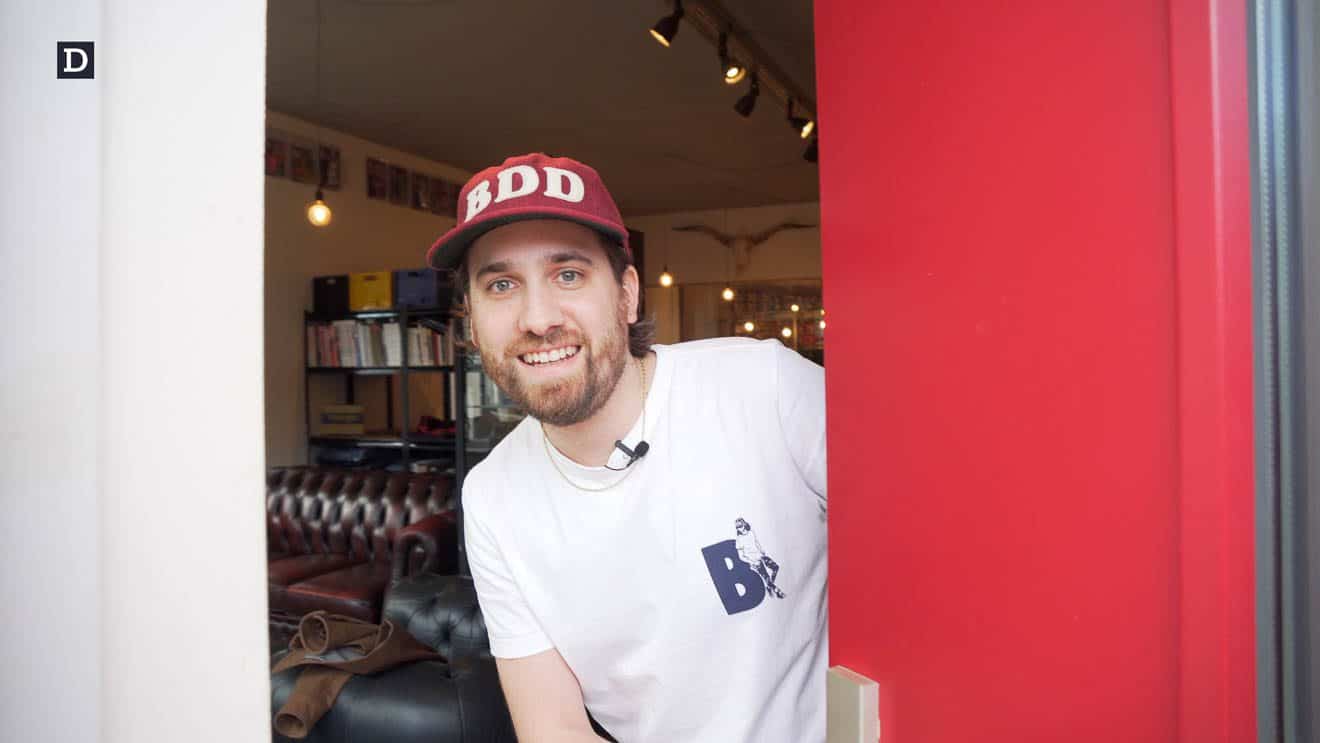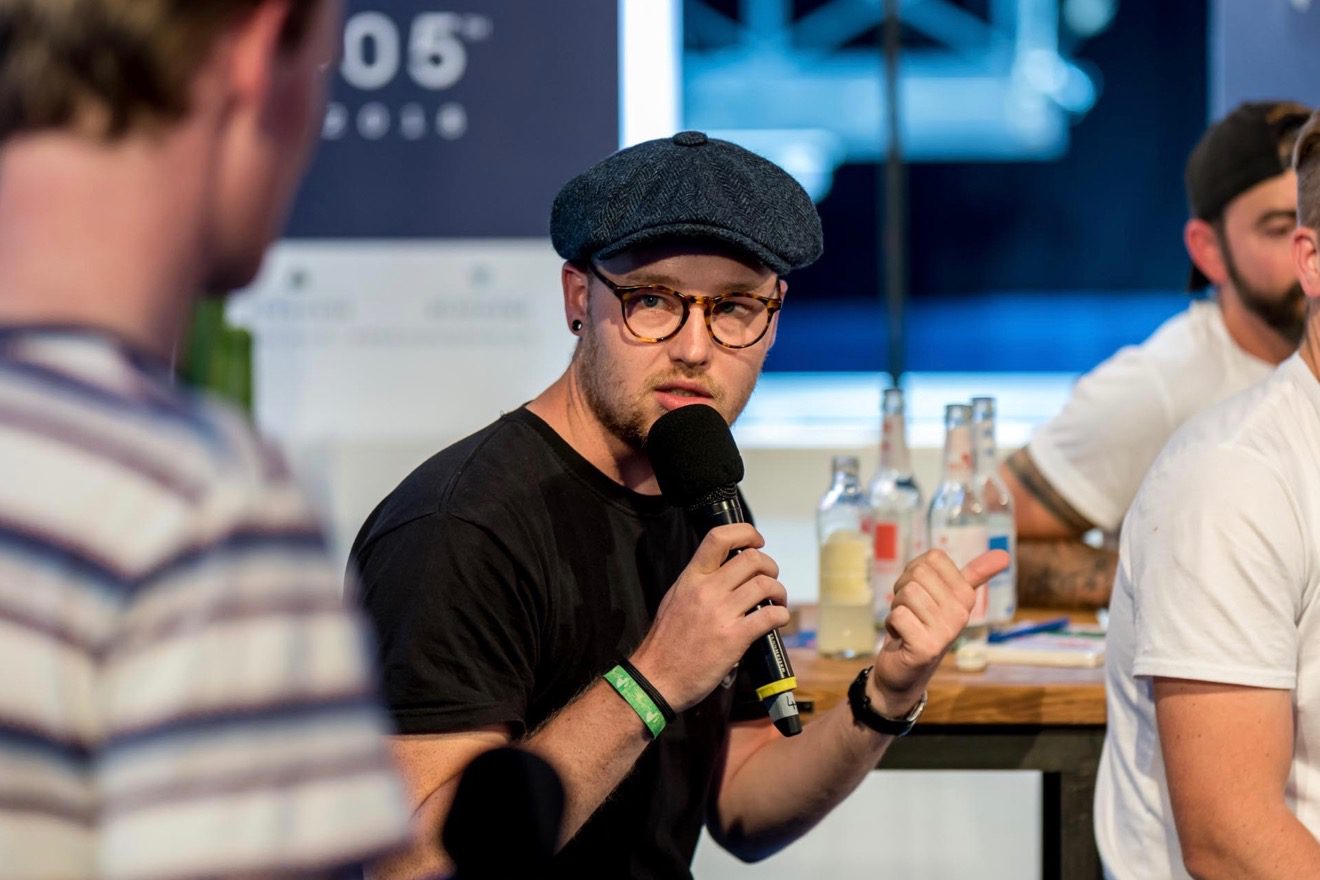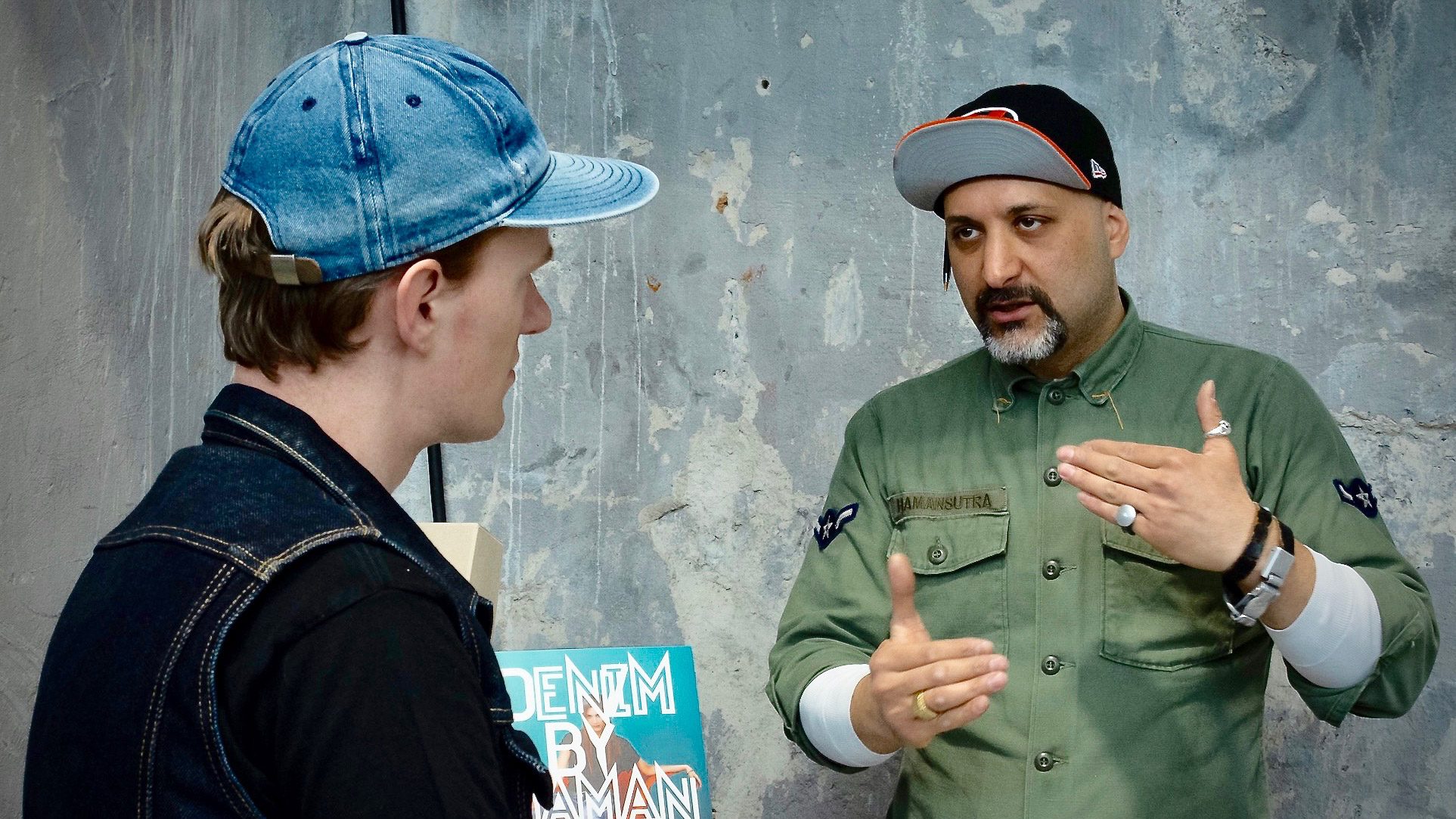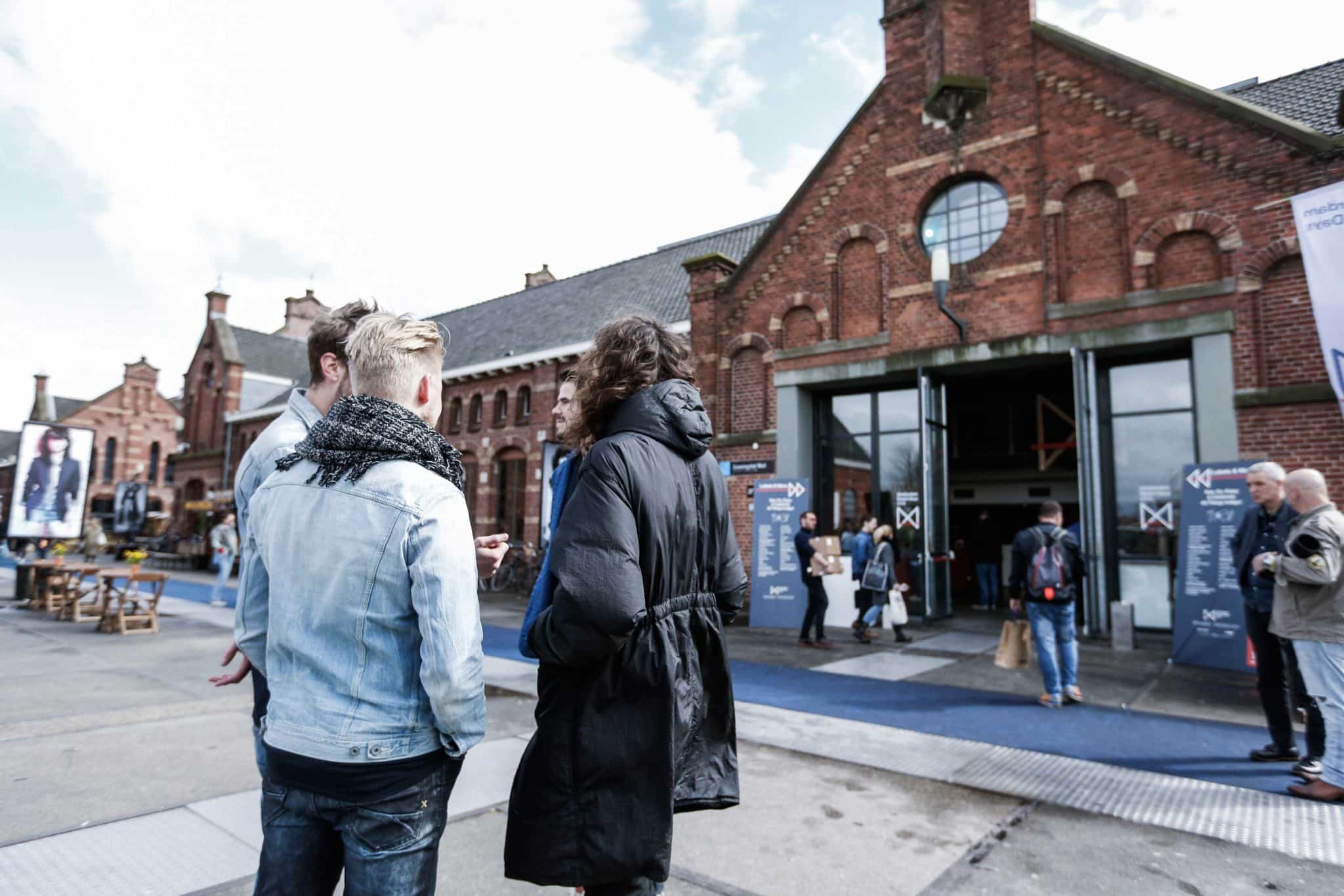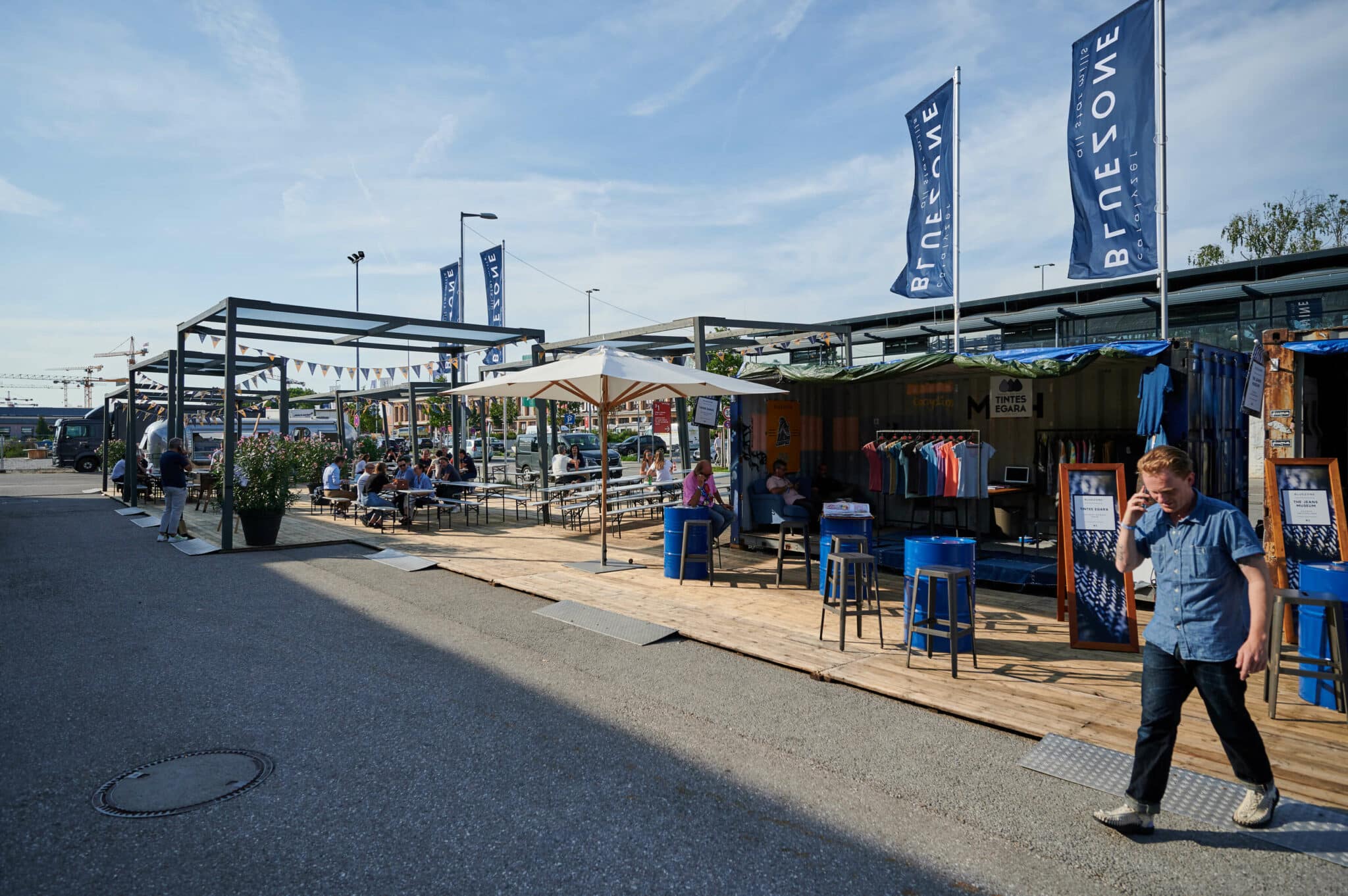… and How Denim City Amsterdam Is a Missing Piece of the Puzzle
When I got my first job selling jeans back in 2008, I didn’t know much about the topic!
I would tell my customers to wait six months before they washed their jeans, that Japanese denim makers had imported old Levi’s looms, and all the other stories we now know are myths or marketing stunts. I even ruined several pairs of jeans following my own advice!
But as I started learning more about the history of the garment and how it’s made, I realised that knowledge sells.
A couple years ago, researchers at the esteemed Wharton business school backed this notion with research. Their study found that educated and engaged retail staff would sell up to 46% more than their peers who don’t have the same product knowledge.
Where to Learn About Denim and Jeans?
The question then is where do you learn about denim and jeans if you want more than what you can find on blogs and in books?
And where do you learn how to put what you’re learning into actions to change their behaviour (in other words, sell more) Luckily, there are now ways to do so that I didn’t have when I started in the business a decade ago:
You’ve got the 2-day masterclass at Blackhorse Lane in London where Mohsin Sajid of ENDRIME teaches you how to make a pair of jeans.
Or, if you’re a ‘degree-seeking students in Fashion Design or Merchandising,’ you can also apply for the 4-week Jeanology programme at the Virginia Commonwealth University, taught by PRPS founder, Donwan Harrell.
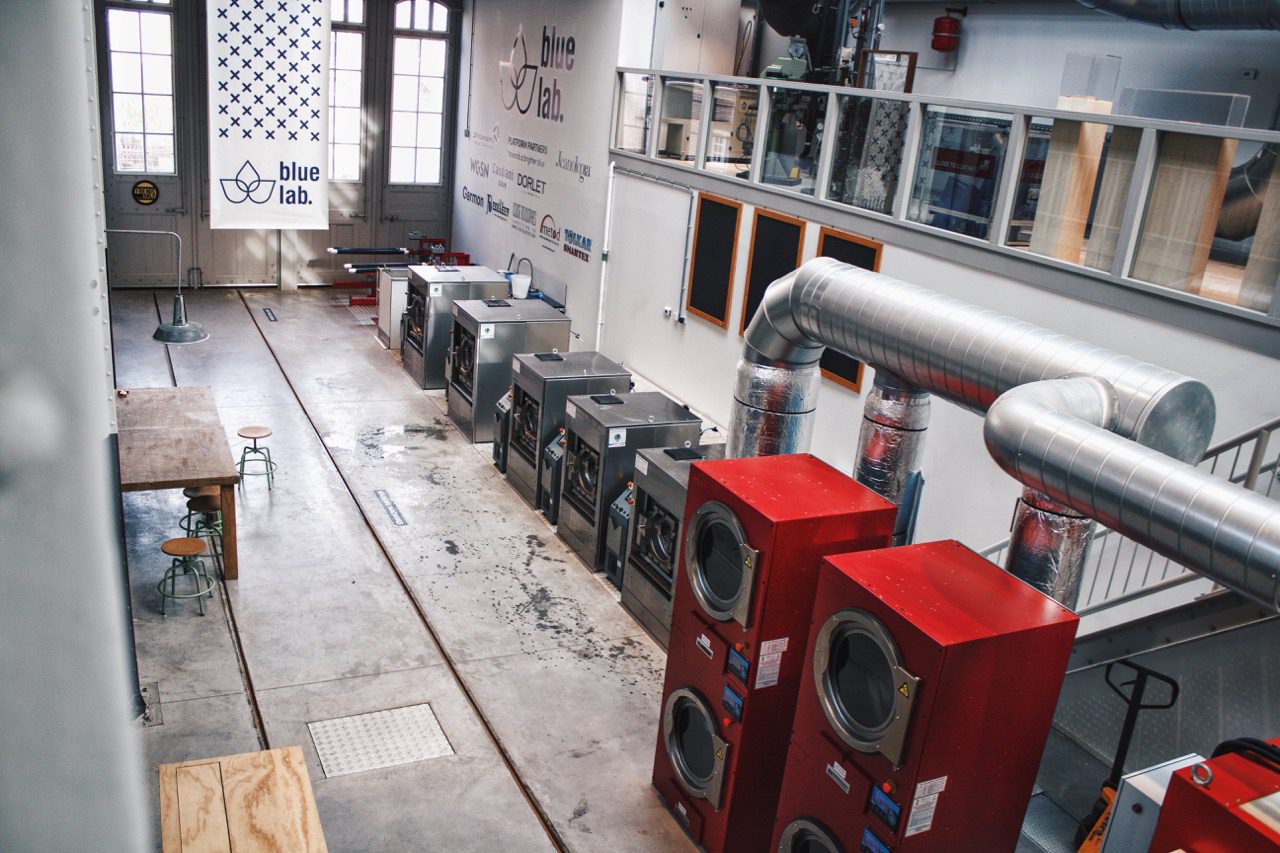
For the future generation of denim developers, there’s also Jean School in Amsterdam, the world’s only independent education facility dedicated to denim, which offers a 3-year full-time programme (taught in Dutch) as well as a 1-year international programme (taught in English).
For companies, though, the ideal solution might be Denim City’s Academy courses, which can be tailored to your exact needs.
On a Friday morning at the end of October earlier this year, I visited this vibrant denim hub in Amsterdam to sit down with their head teacher, Maarten Wentholt, to discuss why the denim and jeans industry is in such a dire need of training and education, and how Denim City aims to solve this issue.
… Enter: Denim City Amsterdam
Maarten greets me and my friend Koen from Blue Roots (who shot most of the photos for this post) at the upstairs facilities of the Blue Lab, the ‘engine room’ of Denim City.
We’re offered coffee and invited to sit down. Maarten immediately strikes me as a genuinely nice guy, and obviously someone who’s very knowledgeable and experienced in his field.

He’s dressed like your typical Dutchman; sneakers, jeans, a T-shirt, and a workwear-inspired jacket. “As we say in Denim City, ‘it’s casual Friday every day in Holland;’ we love to dress down and be casual,” he tells me with a smile.
We’re sitting in the back of the space that houses Denim City, which used to be a tram garage in central Amsterdam; Blue Lab is a fully-equipped laundry with washers, dryers, laser and everything else.
It’s not hard to see why the people behind House of Denim—the foundation behind Denim City—chose to set up shop there; it’s got that authentic industrial look and feel you expect from a place like this.
What is Denim City?
- Denim City hosts the Academy and workshops, the Indigo Archive, classes for the Jean School, the Blue Lab research centre, events and a store.
- It was founded in 2014 by the House of Denim foundation, an initiative by James Veenhoff and Mariette Hoitink, now managed by Harm Magis, to become the HQ for Amsterdam’s denim industry.
- While developing the concept for Amsterdam Fashion Week, Veenhoff had realised that Amsterdam was (and is) a denim hub.
- Companies like G-Star, Pepe Jeans, Calvin Klein, Tommy Hilfiger, KOI, Denham and many more are based in Amsterdam.
- Partners and sponsors of Denim City include Arvind, Candiani, Lenzing, Levi’s, G-Star, C&A, and many more.
- Their clients include retailers, brands as well as other teaching institutions.
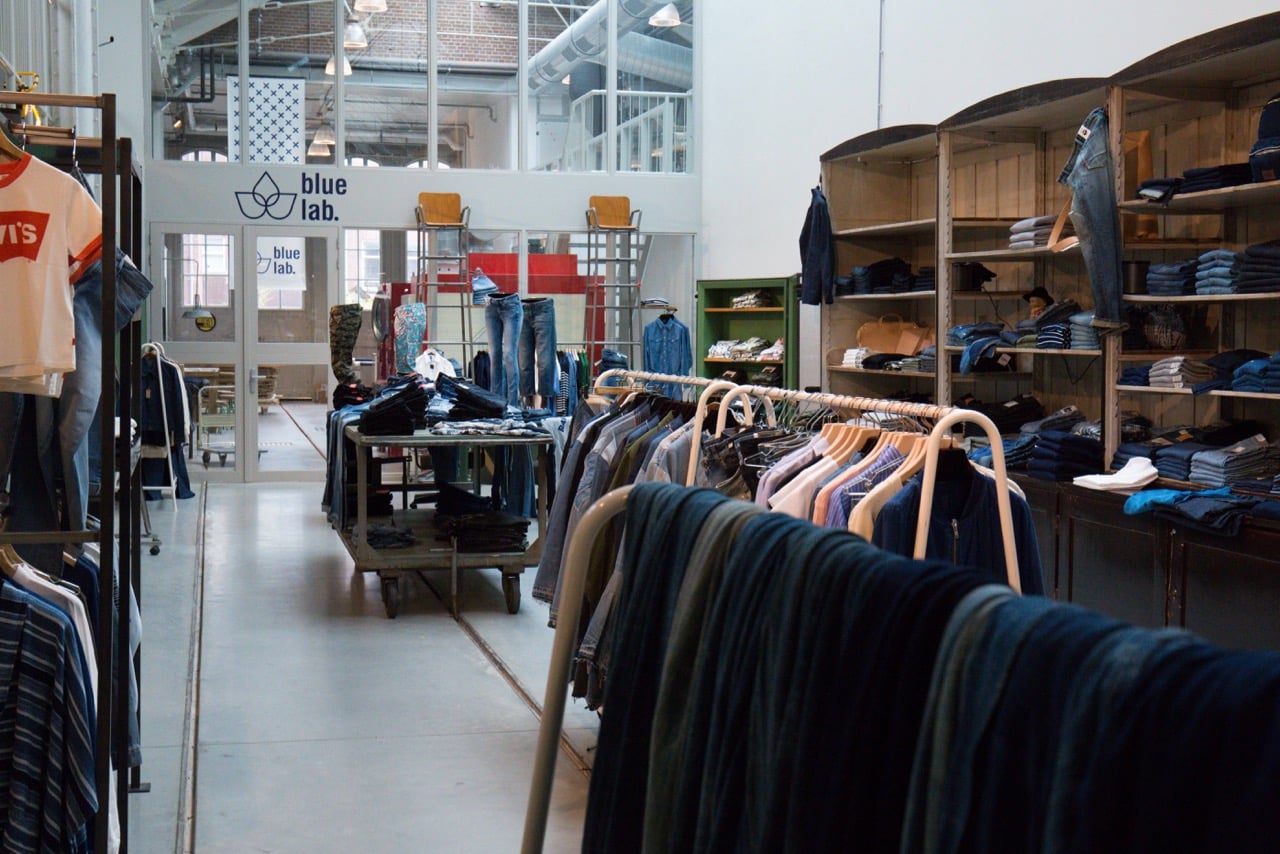
Why Maarten Wanted to Teach, and Why He’s So Qualified
Maarten’s experience with denim and jeans comes from spending more than three decades in the business. Most importantly, he spent 15 years as a product developer at G-Star, where he worked with designers like Pierre Morisset and Marc Newson.
His motivation to join Denim City and become a teacher came from the passionate teachers and colleagues he’d worked with throughout his career.
As a trained technical product developer from the Saxion University of Applied Sciences in Enschede, Maarten knew all the technicalities and the engineering of fabrics and garments in general when he got his first job as a developer in the mid-80s.
But everything he’s learned about denim came through a combination of doing and travelling, he explains.
I’ve always visited mills, factories and fairs to engage in dialogue with all the engineers, and I’m still learning every day!”
Maarten has worked all over the globe and built his experience spending more than thirty years in every part of the world. “Each culture is different although the work is the same,” he adds.
At G-Star, he was responsible for the training of junior developers and interns. So, when he decided it was time for a change in 2012, devoting even more of his time to teaching was a natural choice.
I wanted to dedicate a part of my time to pass on my knowledge and experience because I have a story to tell,” he tells me convincingly. Behind every technical detail he teaches he has an anecdote.
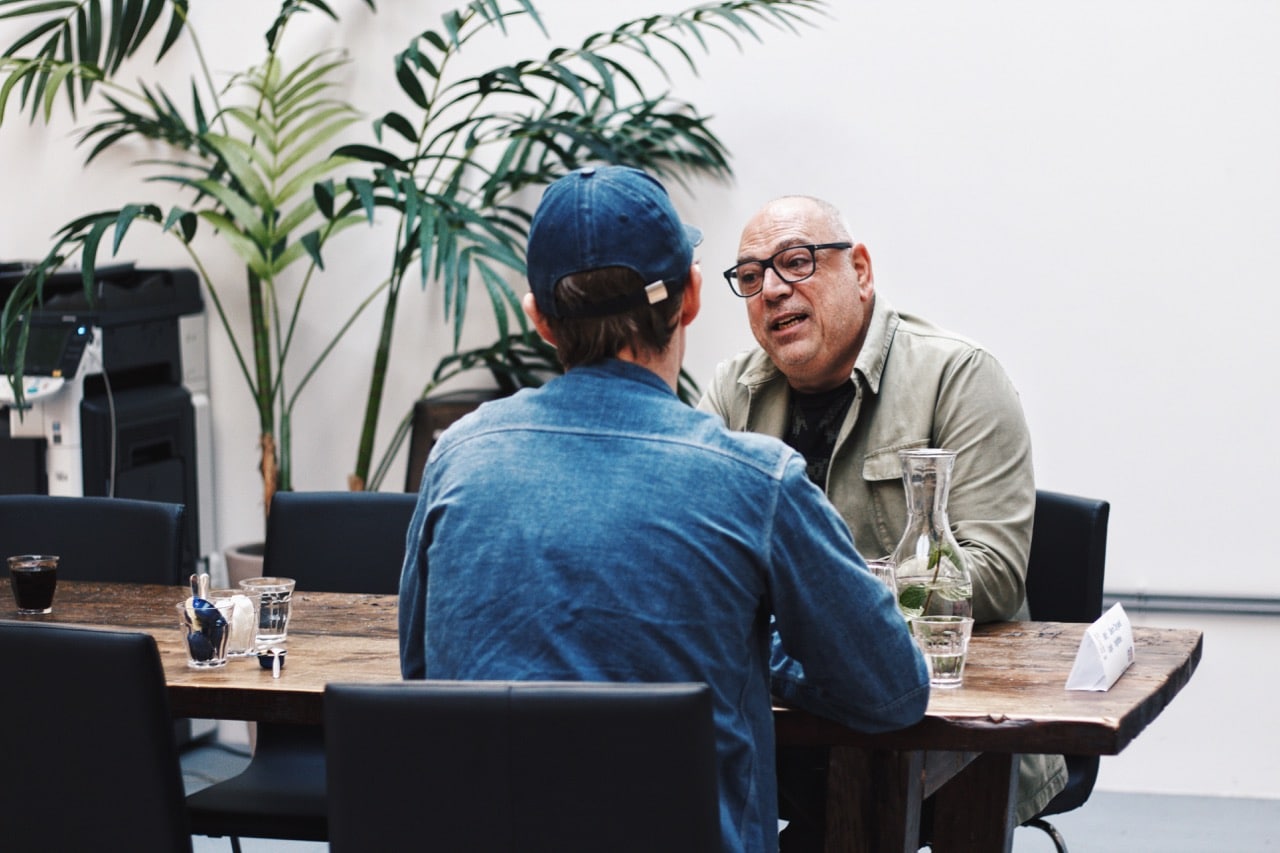
Be Curious and Travel!
On top of sharing his passion and experience, Maarten also wanted to teach because today’s designers, developer and patternmakers (not to mention salespeople, marketers and retail staff) hardly have any time nor budget to go out to visit factories and improve their technical knowledge of our trade.
I have always said that I do my best work in the kitchen of the factory,” he tells me. I pause for a few seconds to let it sink in.
His advice to the new generation of denim designers, developers and anyone who’s out to make it in the denim business is to be curious and to travel as much as possible.
“Ask questions and engage in dialogue with whoever you meet, whether it’s technical engineers, patternmakers, or salespeople from mills. That’s where you get information.”
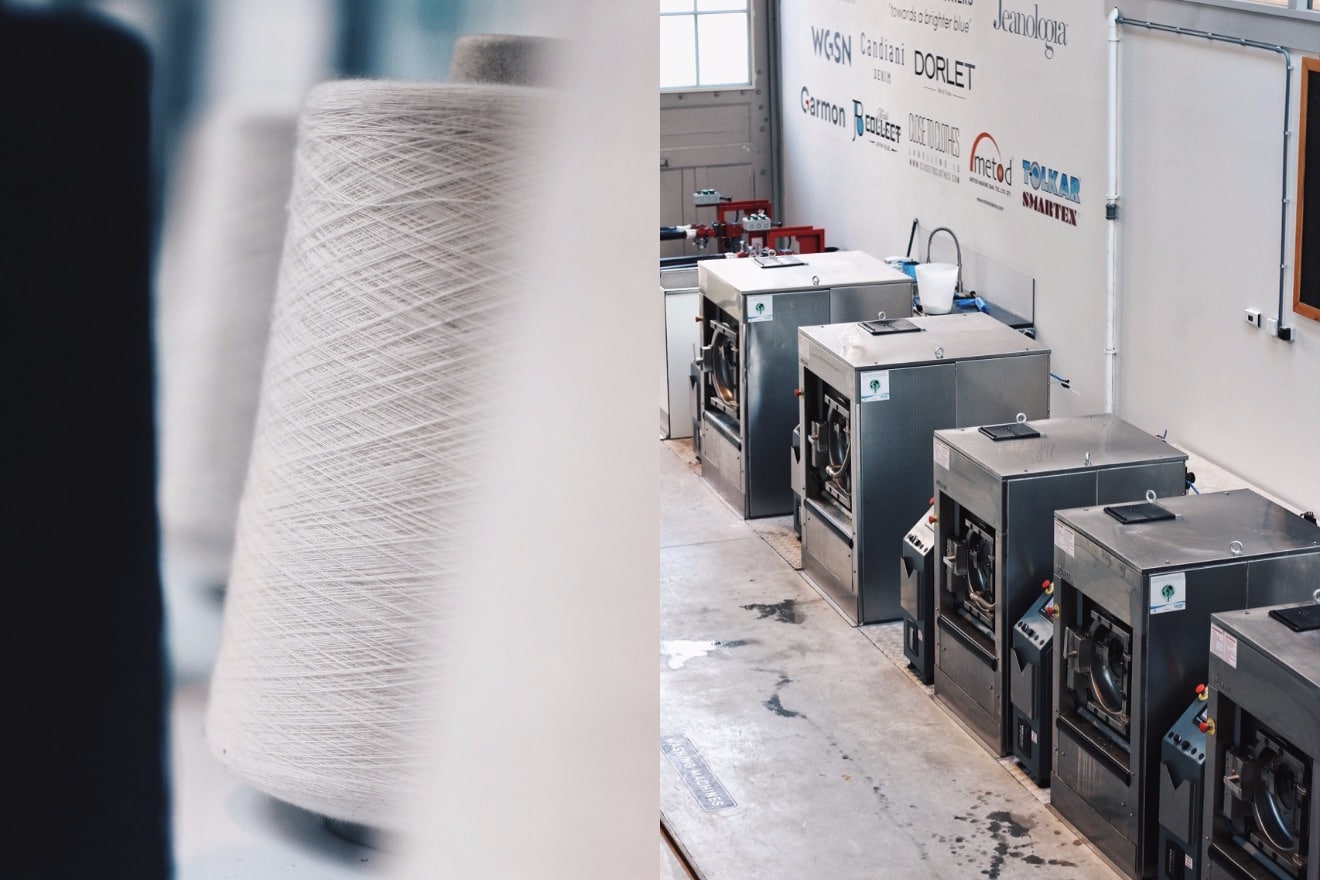
You Need Knowledge to Ask the ‘Right’ Questions
Maarten strongly believes in sharing knowledge. And as we were getting to the nitty-gritty of why we were talking in the first place, I asked him why the denim and jeans industry needs more training and education:
The constantly changing technology plus the issue of sustainability that we’re facing today require a comprehensive technical foundation for each and everyone in the industry,” he answers promptly.
“Because things change so fast,” he elaborates, “and because the denim industry is in a transition at the moment, to become a better, cleaner and smarter industry,” echoing the ‘towards a brighter blue’ motto of Denim City, “we all have to work together and share to become a better industry.”
We should stop sitting on our own eggs in the sense that we seek to use knowledge as an advantage only for ourselves; we should share all this knowledge,” he says.
We talked about how you need basic knowledge in order to be curious; how you need to have a foundation to understand the questions you should be asking, as well as being able to understand the answers you’ll get.
When you ask questions like ‘how can we save water in the laundries’ or ‘how have you made this a more sustainable quality,’ the answers are technical!”
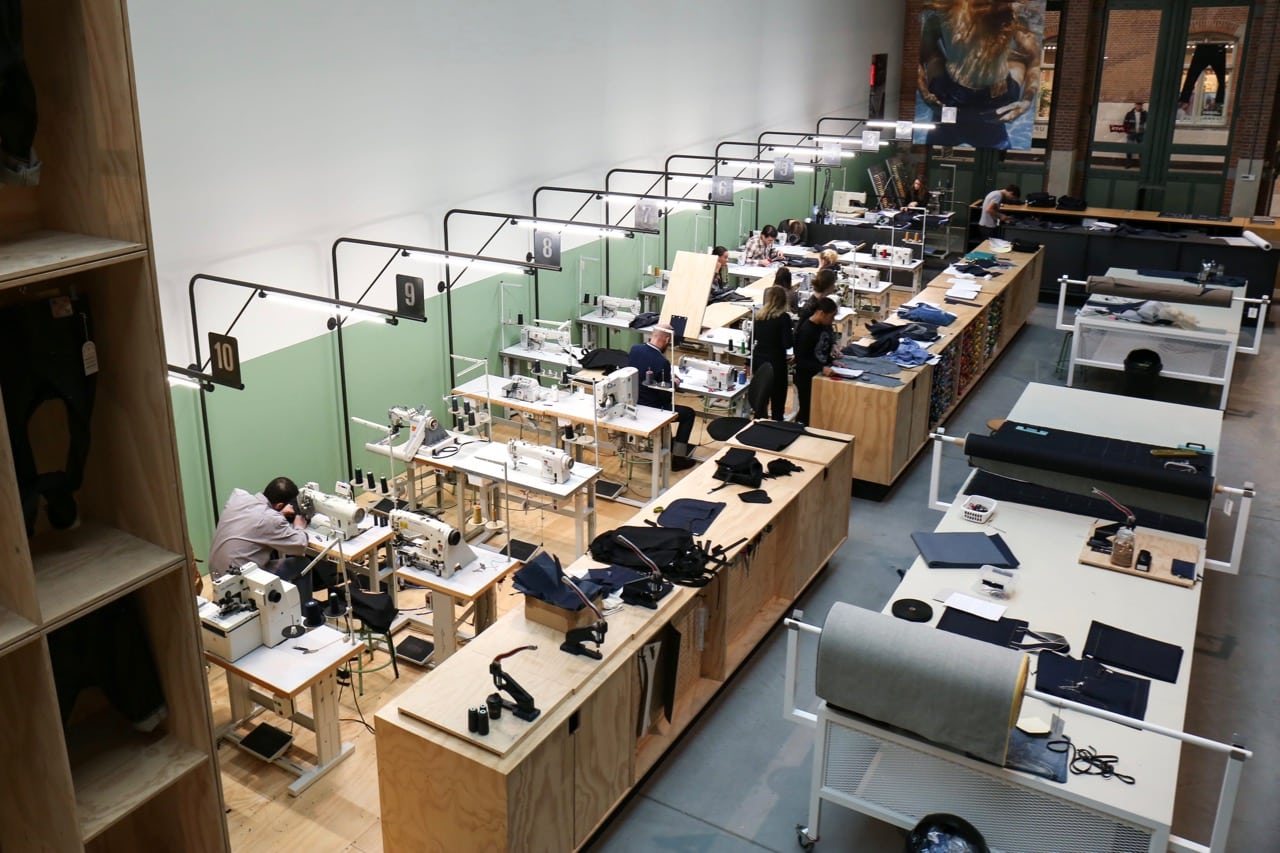
Why Choose Denim City?
Last year, in an interview with FashionUnited, Denim City’s general manager, Harm Magis, discussed how a number of denim labels have their own programmes that are brand specific.
He argued that Denim City offers a broader range and more in-depth courses, which is a key reason brands and retailers work with them. It’s also a matter of costs:
It’s expensive for brands to offer the types of courses we offer here. If denim brands choose to outsource to us, it can save them money,” he told the publication.
“Even buyers at large retailers lack knowledge. We teach them the denim jargon, which is essential to be able to work together with weavers, launderers and factories.”
Maarten adds that “the best compliment we got last year was after the FashionUnited editors came for a denim course to the Academy and one of them told us that ‘I now have much more vocabulary, and more insights, which results in better questions and a more profound conversation.’”
Start Learning!
To find out more about what Denim City offers, visit their website.
Share